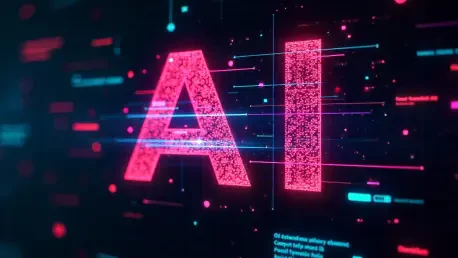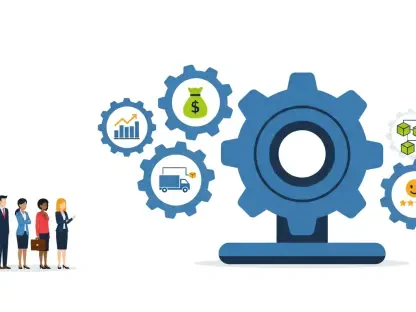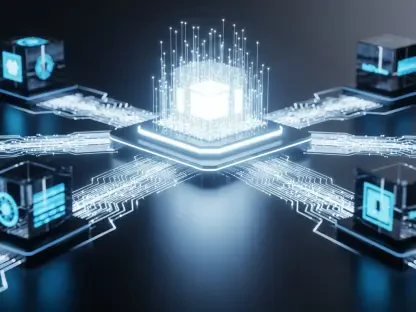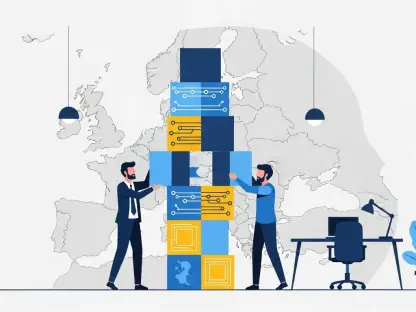In today’s rapidly evolving tech landscape, artificial intelligence continues to break barriers, and the new MCP protocol is at the forefront. Vijay Raina, an expert in enterprise SaaS technology and software architecture, provides insightful commentary on how this emerging standard is reshaping connectivity between AI and data sources. As Microsoft and GitHub join forces to champion this specification, they signal a pivotal shift in AI integration and access to diverse data.
Can you explain what MCP is and how it functions in connecting AI models to data sources?
MCP, or Model Connection Protocol, essentially acts as a bridge between AI models and diverse data sources. It allows these models to access and use information from various systems, such as business tools and software, to complete tasks more effectively. By facilitating two-way communication, MCP enables developers to create both MCP servers, which hold the data, and MCP clients, such as applications and workflows, which access that data when needed.
What are the main benefits of using MCP for developers and AI-powered applications?
The primary advantage of MCP is its ability to enhance the functionality of AI applications by providing seamless access to critical data. Developers can expose app functionalities as MCP servers, making them more adaptable and interactive. This protocol opens new doors for creating applications that can leverage existing data infrastructures to improve decision-making, automate processes, and provide more personalized user experiences.
How do you see MCP impacting the AI industry in the near future as more companies, like OpenAI and Google, adopt it?
With major players like OpenAI and Google coming on board, MCP’s impact will be substantial. It sets a new standard for how AI models interact with data repositories. This widespread adoption will likely accelerate innovation, as developers gain unprecedented access to data across platforms. Such a shift fosters an era where AI applications become more intuitive and responsive, further embedding AI into business operations and daily life.
What specific roles will Microsoft and GitHub play on the MCP steering committee?
Microsoft and GitHub will be crucial in steering the MCP’s direction, providing strategic leadership and expertise. They’ll ensure the protocol meets the evolving needs of the AI industry while also emphasizing security and accessibility. Their role will include collaboration with key stakeholders to refine the protocol and incorporate feedback from the wider developer community.
What contributions are Microsoft and GitHub making to the MCP standard?
Microsoft and GitHub are contributing in several meaningful ways, such as the development of enhanced security specifications. For instance, they’ve worked on a new authorization spec that better safeguards connections between AI apps and MCP servers. This ensures secure data handling and gives users confidence in the integrity of AI interactions.
Could you share more details about the upcoming MCP integrations in Windows 11 and Microsoft Azure?
The upcoming integrations will enable developers to expose functionalities of Windows apps, such as file systems and system commands, as MCP servers. This makes them available to MCP-enabled AI models, catalyzing new ways for AI to interact with core Windows system features. On the Azure front, we’re likely to see versatile deployments that enhance cloud-based AI solutions.
How will these integrations affect developers’ ability to interact with Windows system functionalities through AI models?
These integrations will significantly enhance developers’ capabilities by allowing AI models more interaction with Windows system tools. Developers can wrap critical features as MCP servers, enabling AI-driven applications to leverage these functionalities seamlessly—even complicated tasks like handling Linux subsystems become accessible, opening new possibilities for application development.
How does the updated authorization spec enhance security for MCP-connected apps?
The updated spec offers robust security enhancements by enabling trusted sign-in methods, ensuring that only authenticated and authorized applications can connect to MCP servers. This not only protects sensitive data but also supports compliance with privacy regulations. It provides users with greater confidence that their data is being handled securely.
Can you elaborate on the registry service that GitHub helped design for MCP servers? How does it work?
The registry service is a pivotal addition, allowing developers to create centralized repositories of MCP server entries. This setup facilitates the discovery, management, and deployment of different MCP implementations with ease. Developers can establish either public or private registries, enhancing collaboration and standardizing access to MCP configurations.
What are the challenges you foresee in implementing MCP across different platforms and systems?
One of the significant challenges is ensuring interoperability across diverse systems and platforms, which often have varying architectures and security protocols. Additionally, there’s the need to maintain a balance between providing open access to data and ensuring data privacy and protection. Aligning MCP with existing legacy systems without disrupting current operations is another obstacle.
How does MCP ensure secure and reliable connections between AI models and data sources?
MCP’s design incorporates stringent security measures, utilizing encrypted connections and authentication requirements that ensure only verified entities can access data resources. This, coupled with an updated authorization spec, guarantees that data interactions remain secure, granting developers peace of mind regarding data integrity and confidentiality.
How do you plan to facilitate collaboration with the broader MCP community while developing the standard?
Collaborating with the broader community involves fostering an open dialogue with developers and stakeholders, incorporating their feedback to refine MCP continually. Regular workshops, forums, and collaborative projects will be essential strategies to engage the community and harness diverse perspectives to improve the protocol.
What are the potential implications for businesses adopting MCP in their AI strategies and systems?
Businesses that embrace MCP will likely see enhanced efficiencies from AI applications being able to access a wide array of data seamlessly. This could lead to more intelligent decision-making processes, streamlined operations, and innovative product offerings. Moreover, it positions them to leverage breakthroughs in AI as they occur, ensuring they remain competitive in a data-driven world.
How important is it for AI models to have access to diverse data sources via protocols like MCP?
Access to diverse data sources is crucial for AI models because it enriches the learning and response capabilities of these models. By tapping into varied data, AI applications can offer more accurate analyses and predictions, leading to better business outcomes. MCP’s ability to unify data access significantly increases the value these models can provide, making such protocols indispensable in advancing AI technologies.
What is your forecast for the future of MCP?
I foresee MCP becoming a foundational standard that permeates the AI industry. As more entities adopt and contribute to its development, MCP will likely evolve, incorporating more complex functionalities and supporting broader use cases. This progression will not only bolster AI capabilities but also drive forward the innovation of AI-integrated solutions across various sectors.









